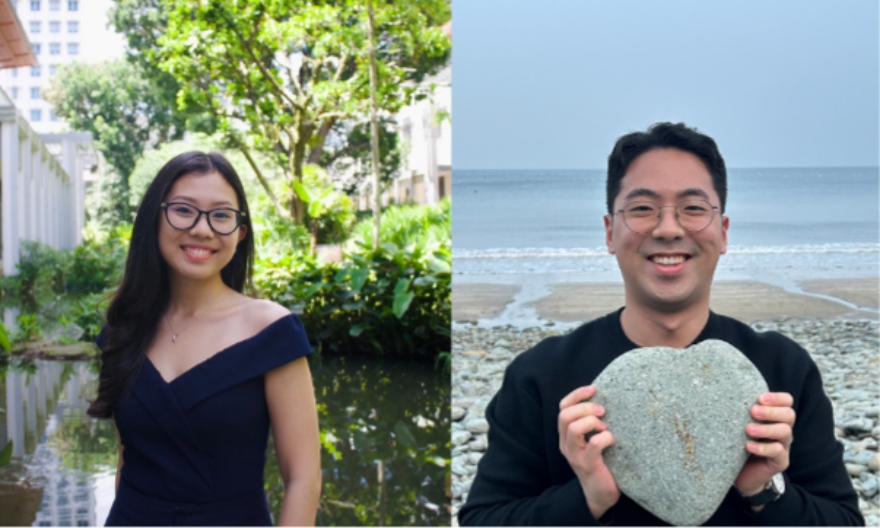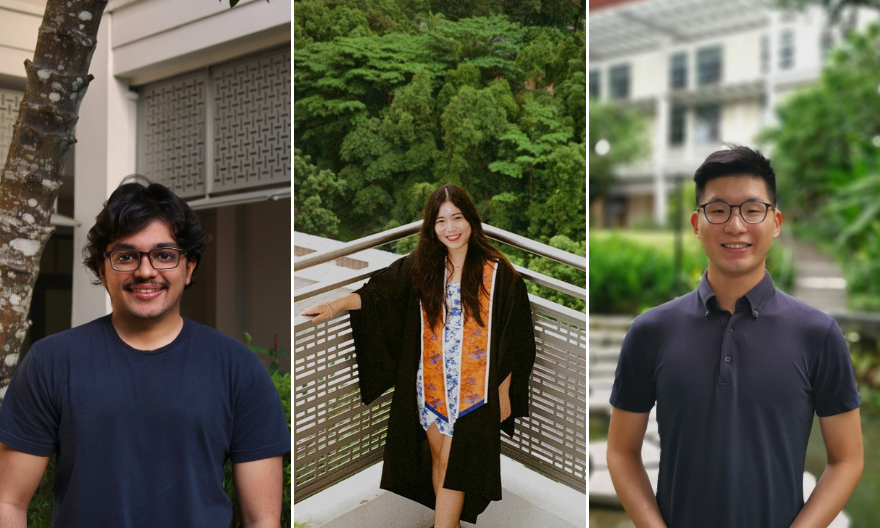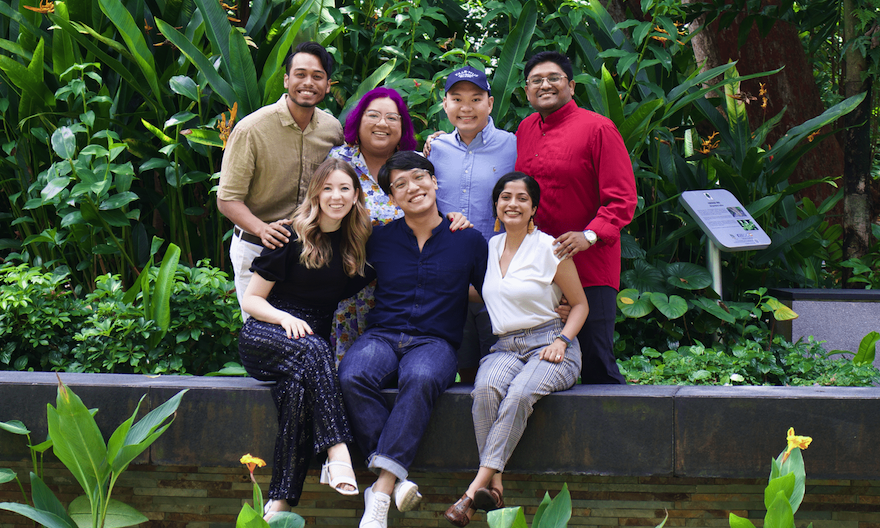Yale-NUS alumni generate positive social change through novel initiatives
*All photos were taken indoors or before the implementation of COVID-19 safe management measures.
Yale-NUS College’s interdisciplinary liberal arts and science curriculum and diverse modes of learning encourage students to integrate knowledge to bring about positive change. Many Yale-NUS alumni have applied what they learned in College to create innovative solutions that impact the local or regional community. Three alumni, Ms Guadalupe Lazaro (Class of 2020), Mr David Chia and Ms Sylvia Gan (both from the Class of 2017), have identified gaps in the communities around them and started new initiatives to address these needs.
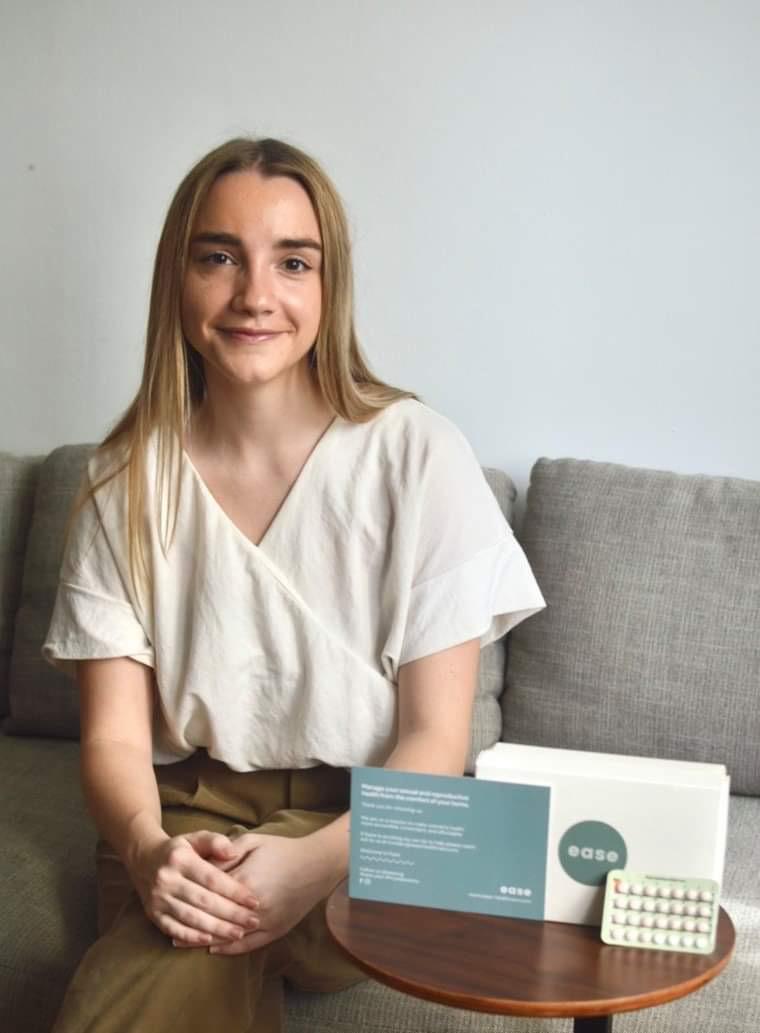 Ms Guadalupe Lazaro, co-founder of Ease Healthcare. Image provided by Ms Lazaro.
Ms Guadalupe Lazaro, co-founder of Ease Healthcare. Image provided by Ms Lazaro.
Ms Lazaro started Ease Healthcare in 2019 with her co-founder, Mr Rio Hoe. Their digital health platform strives to enable easier access for all to sensitive healthcare services such as birth control, contraception and sexual health consultations, making them more convenient, affordable and discreet. Through its website or mobile application, users can consult medical professionals on their sexual health concerns or get medication delivered to their doorstep within 24 hours.
“Ease was inspired by our own experiences of facing stigma or barriers when trying to access sexual and reproductive health services in Singapore – from uncomfortable encounters at the clinic to hours spent queuing up to get a birth control refill. We noticed that with technology, we could break down the barriers and enhance access to these healthcare services,” Ms Lazaro explained.
To do so, the duo was cautious in recruiting medical professionals who were not only experienced in providing healthcare services but were also sensitive and understanding. Patients were thus able to “comfortably share their experiences and learn more about sexual and reproductive health from experts” in a private and stigma-free setting.
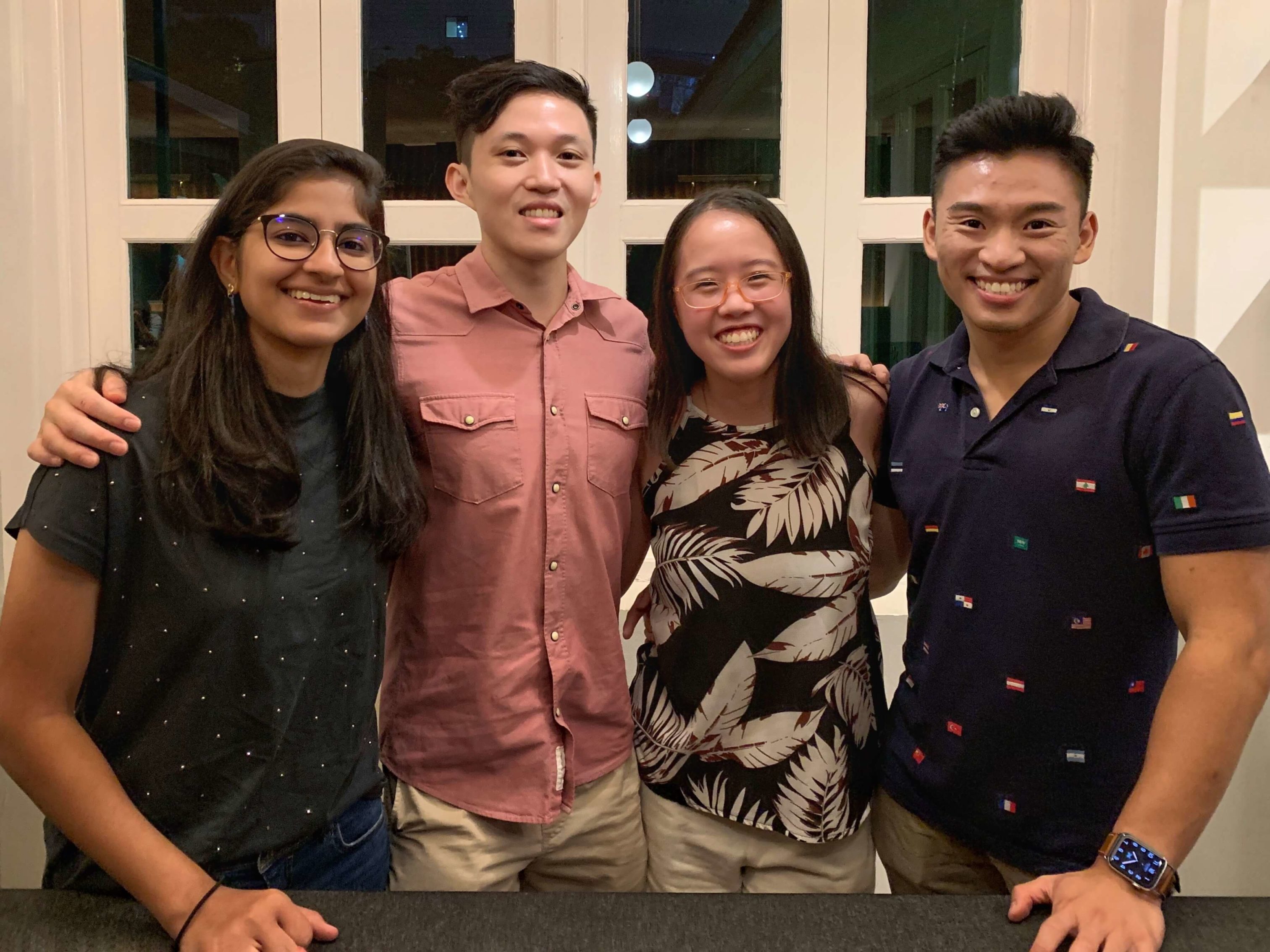 Mr David Chia (far right) and his team members. Image provided by Mr Chia.
Mr David Chia (far right) and his team members. Image provided by Mr Chia.
Within the local community, another alumnus, Mr David Chia, identified a mobile connectivity gap between migrant workers and Singaporeans. When the Circuit Breaker started in March 2020, Mr Chia, alongside three friends, realised that many migrant workers, who were stuck in their dormitories, could not top up their mobile prepaid cards and call home. As a result, they built Call Home, a cloud communications application that enabled workers to call their families back home using 3G or a landline.
“I believe in equalising the connectivity gap: why should workers who already earn less than $1,000 per month be spending more than 10 percent of their income to make overseas calls while the rest of the Singapore middle class who earn way more spend less than one percent? How can we build a future where workers do not have to think twice before making a call to their loved ones back home?” Mr Chia said.
Call Home ensures that every call is kept affordable at only four cents per minute. As of end November 2020, it had 267 monthly users, making about 27,200 call minutes. With funding support from The Majurity Trust and Temasek Trust, it projects to be able to support 10,000 users by the end of 2021.
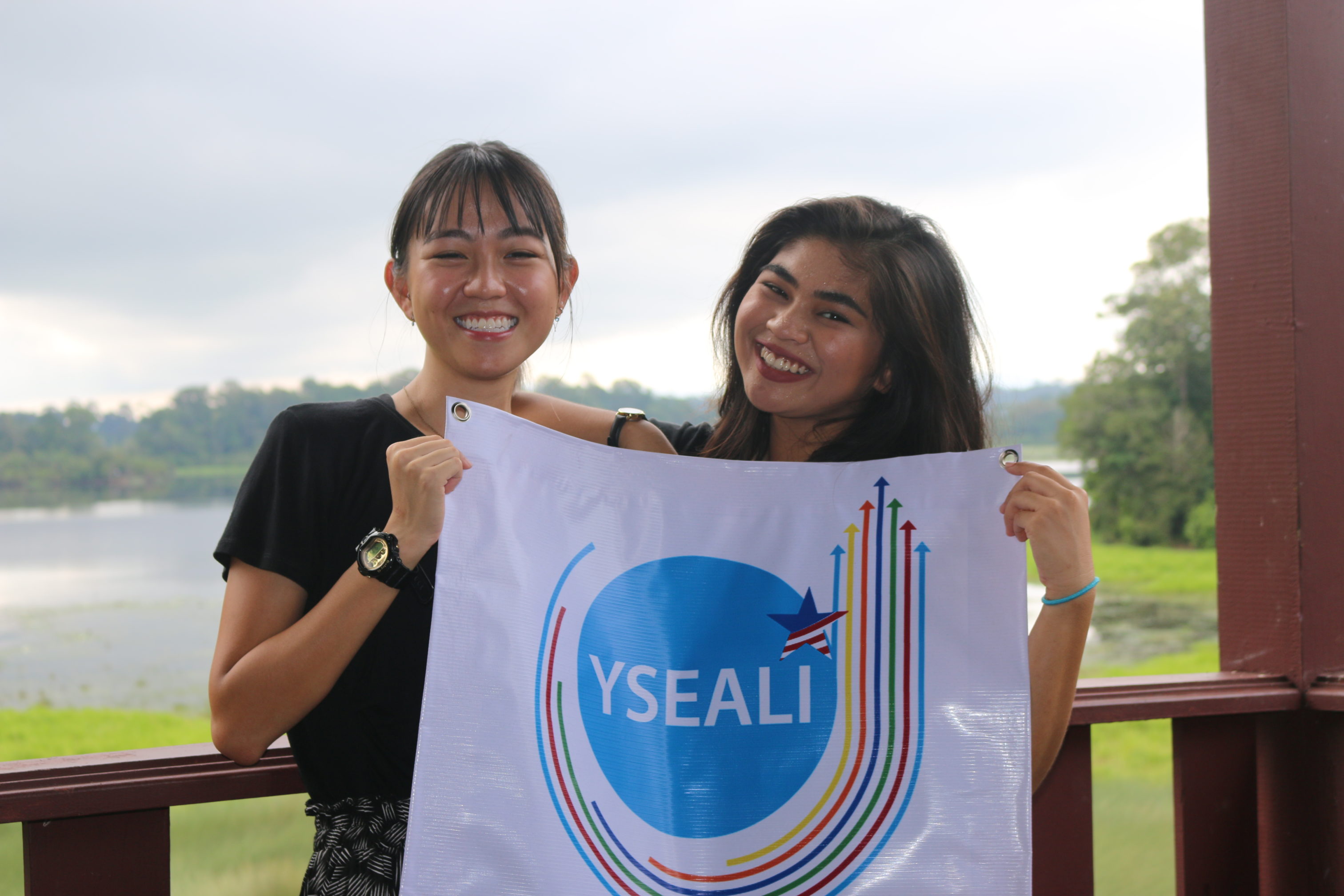 Ms Sylvia Gan (left) with her partner, Ms Jazie Zaini. Image provided by Ms Gan.
Ms Sylvia Gan (left) with her partner, Ms Jazie Zaini. Image provided by Ms Gan.
Beyond Singapore shores, alumna Ms Sylvia Gan, co-founded Play Naturally, a conservation filmmaking programme in Brunei. The programme brings together Bruneian youths to learn about local environmental issues and Dusun culture, and create short films inspired by the history and nature of Tasek Merimbun, Brunei’s largest natural lake and an Association of Southeast Asian Nations (ASEAN) Heritage Site. The programme is funded by a generous grant from Young Southeast Asian Leaders Initiative (YNSEALI) Seeds for the Future Programme.
“Play Naturally was started in 2019, by me and my Bruneian partner, Ms Jazie Zaini, whom I met on a Natural Resource Management exchange programme to the United States. While in Hawaii and California, we saw how native communities connected to their lands through their cultural and religious practices. Hence, by making short films inspired by Brunei’s Dusun community and their ties to Tasek Merimbun, we want to highlight how Southeast Asian indigenous communities connect to their lands,” Ms Gan said.
“We want to make sure that we are representing the Dusun community’s stories in a way that they would be proud of but this can be difficult because we have to manage many different stakeholders — the participants, governmental officials, filmmakers, Non-Governmental Organisations (NGOs) and environmental groups. To achieve this, we try to consult the Dusun community at every possible stage of filmmaking, through facilitating dialogues with the Dusun community at Tasek Merimbun, consulting researchers of Dusun culture and ensuring that every story we cover is well-researched,” she added.
The short films will be released by December 2020.
As part of the pioneer class in Yale-NUS, both Mr Chia and Ms Gan credited their college experience in preparing them well for their forays in social impact.
Mr Chia is thankful for the opportunity he had to build things from scratch. “Beyond an entrepreneurial spirit, Yale-NUS, through the Common Curriculum and classes that encouraged critical thinking, enabled me to connect various aspects required to be a successful product manager such as design, data, user research, and funding strategies,” he said.
Echoing his thoughts, Ms Gan said, “Being a part of the inaugural class has definitely planted this belief in me that if you have a good idea and are willing to work towards it, that you can build something out of nothing; that was what led me to start Play Naturally.”

